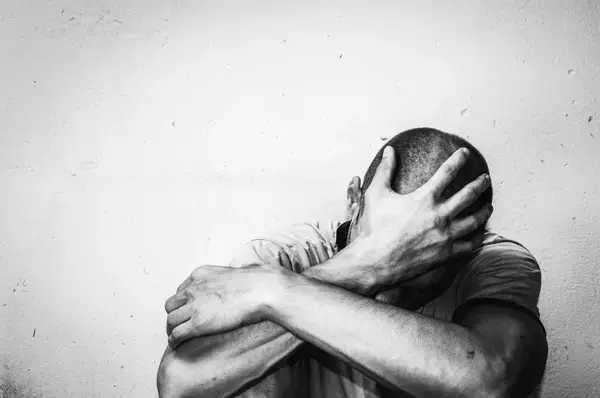
Addictions, whether to substances (like alcohol or drugs) or behaviors (such as gambling, gaming, or compulsive eating), can profoundly interfere with our ability to set, pursue, and achieve meaningful goals. It can disrupt and create a significant barrier to motivation, decision making, and self-identity. From a psychotherapy perspective, addiction is not just a problem of behavior—it’s often a symptom of deeper emotional pain, unmet needs, or trauma.
When someone is caught in the cycle of addiction, their time, energy, and attention are hijacked. Instead of investing in their relationships, careers, health, or personal growth, they become increasingly focused on obtaining relief, escape, or stimulation from the addictive behavior. This is a bandaid - a short-term coping strategy that sabotages long-term goals. Over time, motivation, self-esteem, and hope can disappear, making goal-setting feel overwhelming or pointless.
Psychotherapy can offer direction. The first step is building awareness: understanding what purpose the addiction is serving. Is it soothing anxiety, numbing past trauma, or filling a void? Exploring this in therapy creates insight and opens the door to healthier coping strategies. Helping people make meaning of their addiction history can transform shame into understanding and create change.
At its core, addiction undermines the individual’s sense of agency (the ability to initiate and control their own actions and the sense of being in charge of those actions and their outcomes). Goals, by definition, require a capacity for future-oriented thinking, emotional regulation, and sustained effort—capacities that are often damaged in addictive cycles.
Clients often start therapy with confusion about why they can’t "get back on track" or meet their own expectations. From a therapeutic stance, this isn’t simply a lack of willpower—it reflects an internal conflict. The addictive behavior often serves as a dysfunctional solution to unmet emotional needs: numbing pain, escaping shame, regulating anxiety, or filling relational voids.
Therapy helps develop emotional regulation skills, which are crucial for managing the discomfort that arises when we stop relying on addictive behaviors. Techniques from Cognitive Behavioral Therapy (CBT), Dialectical Behavior Therapy (DBT), or mindfulness-based therapies can support this process. Building a good support network, having a buddy to rely on for extra encouragement to help get through the set backs, anxiety, and emotional pain, will better ensure that the work being done is moving in the right direction.
Clients may articulate goals—repairing relationships, returning to school, improving health—but struggle to initiate action or follow through. This is not simply executive dysfunction; it's a form of value-disconnection. The client’s inner world has become organized around short-term relief rather than long-term fulfillment. Setting realistic, values-based goals is also key. Instead of just focusing on stopping the addiction, therapy can help clients to reconnect with what truly matters—relationships, creativity, health, or a sense of purpose. Being able to reflect on what matters most to—relationships, autonomy, health, contribution—and to identify where addiction has interfered with these domains, helps shift the focus from symptom reduction ("just stop using") to value-based living, which is a more sustainable foundation for recovery.
Shame is a powerful and often hidden force in addiction. Repeated failures to meet goals—especially in the context of relapse—can lead to a diminished sense of self-worth. Over time, clients may internalize an identity of being "lazy," "broken," or "hopeless." This shame-based self-concept becomes another barrier to setting or pursuing goals, as individual’s doubt their own capacity for change. It's important to distinguish between the want to change but feels incapable and the not yet seeing a problem. In both cases, part of the therapeutic work involves helping to reconstruct a coherent and compassionate sense of self that is capable of growth, change, and commitment.
Setbacks will likely happen but they can be helpful! It’s an opportunity to see what triggers or stressors were present, what unmet needs arose, and what skills or supports were missing.
Addictions, whether to substances (like alcohol or drugs) or behaviors (such as gambling, gaming, or compulsive eating), can profoundly interfere with our ability to set, pursue, and achieve meaningful goals. It can disrupt and create a significant barrier to motivation, decision making, and self-identity. From a psychotherapy perspective, addiction is not just a problem of behavior—it’s often a symptom of deeper emotional pain, unmet needs, or trauma.
When someone is caught in the cycle of addiction, their time, energy, and attention are hijacked. Instead of investing in their relationships, careers, health, or personal growth, they become increasingly focused on obtaining relief, escape, or stimulation from the addictive behavior. This is a bandaid - a short-term coping strategy that sabotages long-term goals. Over time, motivation, self-esteem, and hope can disappear, making goal-setting feel overwhelming or pointless.
Psychotherapy can offer direction. The first step is building awareness: understanding what purpose the addiction is serving. Is it soothing anxiety, numbing past trauma, or filling a void? Exploring this in therapy creates insight and opens the door to healthier coping strategies. Helping people make meaning of their addiction history can transform shame into understanding and create change.
At its core, addiction undermines the individual’s sense of agency (the ability to initiate and control their own actions and the sense of being in charge of those actions and their outcomes). Goals, by definition, require a capacity for future-oriented thinking, emotional regulation, and sustained effort—capacities that are often damaged in addictive cycles.
Clients often start therapy with confusion about why they can’t "get back on track" or meet their own expectations. From a therapeutic stance, this isn’t simply a lack of willpower—it reflects an internal conflict. The addictive behavior often serves as a dysfunctional solution to unmet emotional needs: numbing pain, escaping shame, regulating anxiety, or filling relational voids.
Therapy helps develop emotional regulation skills, which are crucial for managing the discomfort that arises when we stop relying on addictive behaviors. Techniques from Cognitive Behavioral Therapy (CBT), Dialectical Behavior Therapy (DBT), or mindfulness-based therapies can support this process. Building a good support network, having a buddy to rely on for extra encouragement to help get through the set backs, anxiety, and emotional pain, will better ensure that the work being done is moving in the right direction.
Clients may articulate goals—repairing relationships, returning to school, improving health—but struggle to initiate action or follow through. This is not simply executive dysfunction; it's a form of value-disconnection. The client’s inner world has become organized around short-term relief rather than long-term fulfillment. Setting realistic, values-based goals is also key. Instead of just focusing on stopping the addiction, therapy can help clients to reconnect with what truly matters—relationships, creativity, health, or a sense of purpose. Being able to reflect on what matters most to—relationships, autonomy, health, contribution—and to identify where addiction has interfered with these domains, helps shift the focus from symptom reduction ("just stop using") to value-based living, which is a more sustainable foundation for recovery.
Shame is a powerful and often hidden force in addiction. Repeated failures to meet goals—especially in the context of relapse—can lead to a diminished sense of self-worth. Over time, clients may internalize an identity of being "lazy," "broken," or "hopeless." This shame-based self-concept becomes another barrier to setting or pursuing goals, as individual’s doubt their own capacity for change. It's important to distinguish between the want to change but feels incapable and the not yet seeing a problem. In both cases, part of the therapeutic work involves helping to reconstruct a coherent and compassionate sense of self that is capable of growth, change, and commitment.
Setbacks will likely happen but they can be helpful! It’s an opportunity to see what triggers or stressors were present, what unmet needs arose, and what skills or supports were missing.
Recovery isn’t a straight line - for some harm reduction works better than complete abstinence, but with consistency and returning to why sobriety is important to you, individuals can move toward their goals with more self-compassion.
Lisa Sutherland
Contact Me


